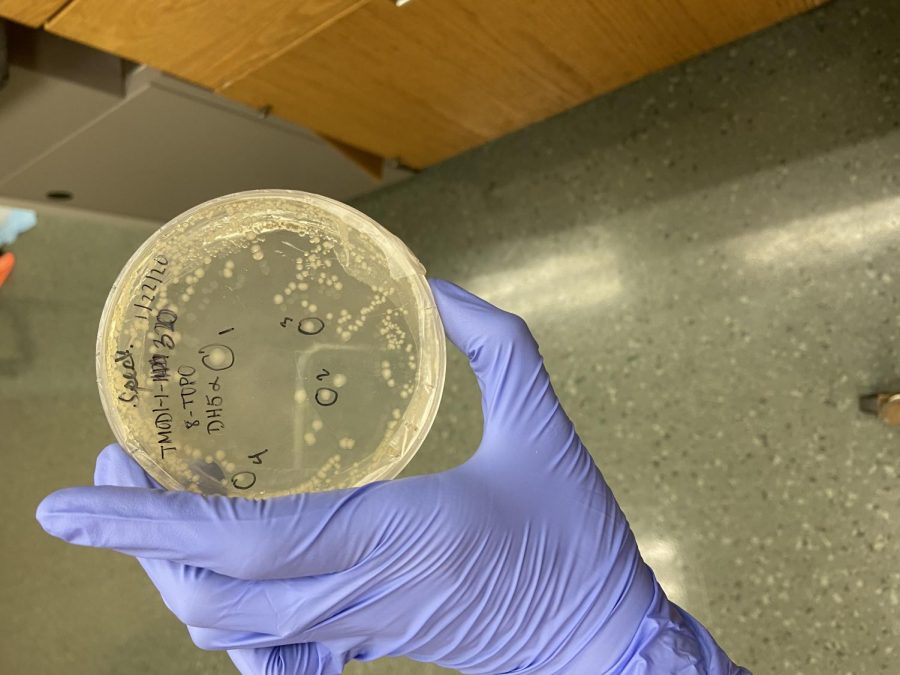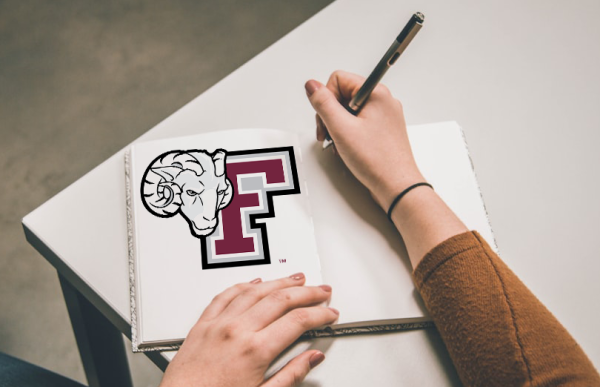Fordham Senior Studies Protein Interactions
Rachel Molina, FCRH ’20, prefers to spend her time focusing on the small things. She works in a lab on campus under Qize Wei, Ph.D., analyzing protein interactions in cells.
Molina’s research deals with a specific gene called TMOD1. She observes the ways the proteins created by TMOD1 interact with other proteins and how those interactions affect the cytoskeleton of a cell. A cell’s cytoskeleton is a series of proteins that gives it its shape and holds things in place.
Molina has been working in the lab with Wei since the fall of 2018 after reaching out to several professors looking for lab opportunities. She said she would tell other students looking for research positions on campus to take initiative and reach out to professors with labs.
“You definitely have to go out of your way to get a research position,” she said. “No one is going to go out of their way to give it to you. It may feel weird to reach out to someone you’ve never talked to before, but you just have to send the email.”
When she is in the lab, there are a number of procedures Molina completes before she can observe the protein. For example, a process called PCR multiplies a segment of the TMOD1 DNA. Another process called linearization uses an enzyme to uncoil the DNA’s double helix in order to make it easier to see under a microscope.
Molina is working on this project by herself, but she says she has come a long way since she started. In her first days at the lab, she said she was tasked with basic prep procedures like making gels used in the lab.
“It’s kind of intimidating walking in there for the first time, but everyone was very helpful, and they wanted to help me learn,” she said.
Molina said those early days learning the ropes paid off for her. She said she still uses what she learned in her work now.
“I became more familiar with the procedures and the protocol in the lab,” she said. “For example, if you’re pipetting bacteria, afterwards you have to bleach it to kill the bacteria. There’s a correct way to do everything.”
For Molina, working in the lab allowed her to apply the knowledge she had from her classes as a biology and anthropology double major in a practical setting.
“Concepts help, but it’s definitely challenging to put (them) into practice,” she said.
Molina said classes like genetics gave her some of the practical skills — like properly handling equipment — that she uses in the lab. However, she still emphasized the difficulty of transitioning from a classroom to a lab environment.
“It’s definitely different, and you definitely won’t be comfortable. You have to work in the lab to get there. You won’t just walk in and immediately feel comfortable.”
With her sights set on medical school in the future, Molina said she is glad she got this experience as an undergrad.
“It’s definitely given me practical experience, which you need for med school,” she said. “They like to see you doing research and that you’re involved in practical application of science.”
While she has not gotten to the point of seeing results yet, Molina still said she learned a lot from her experience in the lab.
“You have to think critically and remember what comes next when you do something,” she said. “Even though I haven’t found anything yet, it has helped me learn procedures, which is important for all scientists.”
Molina’s research is still ongoing, and she said she is hoping to see results soon. In terms of next steps, she said she hopes to present her research at the Undergraduate Research Symposium in the spring.















































































































































































































